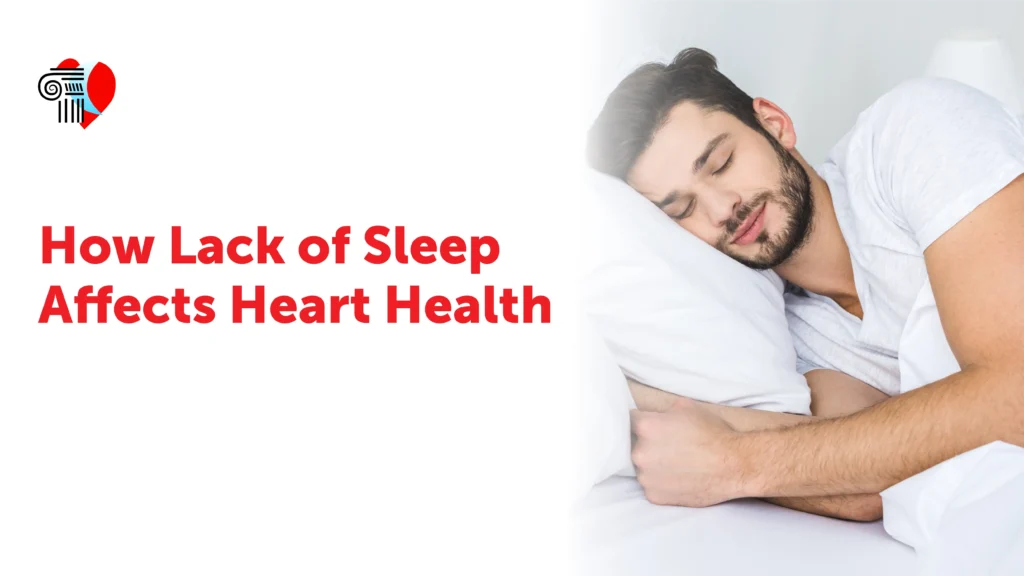How Lack of Sleep Affects Heart Health
How Lack of Sleep Affects Heart Health If you’ve ever tossed and turned through the night, stared at the ceiling at 3 a.m., or woken up feeling like you didn’t sleep at all, you’re not alone. We hear stories like this every day from patients at our sleep clinic in Athens, GA. But here’s something most people don’t realize: poor sleep doesn’t just make you tired—it can quietly damage your heart. Whether you’re a parent, a student at UGA, a retiree, or a busy professional, your heart depends on deep, restful sleep to stay healthy. So let’s talk about how your sleep and your heart are connected. When you sleep, your heart finally gets a break. Your blood pressure drops. Your heart rate slows down. Your stress hormones ease up. But when you don’t sleep well? Your blood pressure stays high Your heart rate speeds up Your body stays in a “fight or flight” mode all night Over time, this affects your heart. That’s why we’re seeing more and more people develop heart issues tied directly to poor sleep habits. “I Just Thought I Was Tired. I Had No Idea It Was My Heart.” Many of our patients come in because they’re tired during the day, or because their partner complains about snoring. But during their sleep evaluation, we discover signs of sleep apnea, insomnia, or restless sleep, all of which can lead to heart problems if left untreated. Here’s what we want everyone in Athens to know: Poor sleep can lead to: High blood pressure that doesn’t go down—even with meds A fast or irregular heartbeat Greater risk of heart attack or stroke Heart failure over time If you’ve been asking yourself, “Why is my heart rate so high when I’m resting?” or “Can sleep deprivation cause heart problems?”—the answer is yes. https://youtu.be/1N6ZQX8u0AA?si=PJLv7fGk_6O4EjaF Sleep Apnea and Heart Disease: The Dangerous Link One of the biggest risks we see is obstructive sleep apnea. This condition causes your breathing to stop and start during the night, sometimes hundreds of times. Every time it happens, your oxygen levels drop, and your heart is forced to work harder. That’s why sleep apnea and high blood pressure go hand in hand. Left untreated, sleep apnea doubles your risk of heart disease. If you snore, gasp for air at night, or wake up feeling like you never slept, you may have sleep apnea, and your heart could already be feeling the effects. How Much Sleep Do You Need? Most adults need 7 to 9 hours of quality sleep each night—not just any sleep, but sleep that feels truly restful. If you wake up tired, feel groggy throughout the day, or rely on caffeine to keep going, your sleep isn’t doing its job. We ask our patients all the time: “Do you feel rested when you wake up?” If the answer is no, something deeper may be going on. 5 Signs Your Sleep Could Be Hurting Your Heart You snore loudly or wake up gasping You feel exhausted despite 7+ hours in bed Your blood pressure stays high, even on medication You’ve gained weight without major changes in diet Your smartwatch shows a high resting heart rate If any of these sound like you, talk to a sleep doctor in Athens, GA. You might think it’s “just bad sleep,” but your heart may be trying to tell you something. What You Can Do Today to Sleep (and Feel) Better Making small changes to your routine can protect your heart, starting tonight: Best ways to sleep if you have heart concerns: Sleep on your left side: This can ease pressure on the heart and reduce snoring. (best way to sleep with a heart problem) Stick to a regular schedule: Going to bed and waking up at the same time every day helps reset your internal clock. Avoid caffeine and alcohol after 2 p.m. They can raise your heart rate and disturb your sleep. Keep your bedroom cool, quiet, and dark; around 65–68°F is ideal. If you’ve been prescribed CPAP therapy, use it consistently. It’s one of the best tools for managing sleep apnea and heart disease. What We Do at Athens Sleep & Wellness Center At Athens Sleep & Wellness Center in Athens, GA, we don’t just treat sleep problems—we help people feel like themselves again. Every patient we see has their own story, and our goal is to help you get your nights (and days) back on track. We offer: Sleep testing (in-lab or at-home) Diagnosis and treatment for sleep apnea, insomnia, restless sleep, and more CPAP setup and support Customized treatment plans for better heart and sleep health Our team is here to listen, guide you, and walk with you every step of the way. Ready to Feel Like Yourself Again? If you’re worried that lack of sleep is affecting your heart, please don’t ignore it. You don’t have to wait until things get worse. The earlier we catch it, the easier it is to treat. We’re your neighbors, and we care about your health. Whether it’s scheduling a sleep study or just asking questions, you’re always welcome at Athens Sleep & Wellness Center. 📍 Visit us in Athens GA 📞 Call us today at +1(706)208-9700 📅 Schedule your consultation online
How Lack of Sleep Affects Heart Health Read More »
